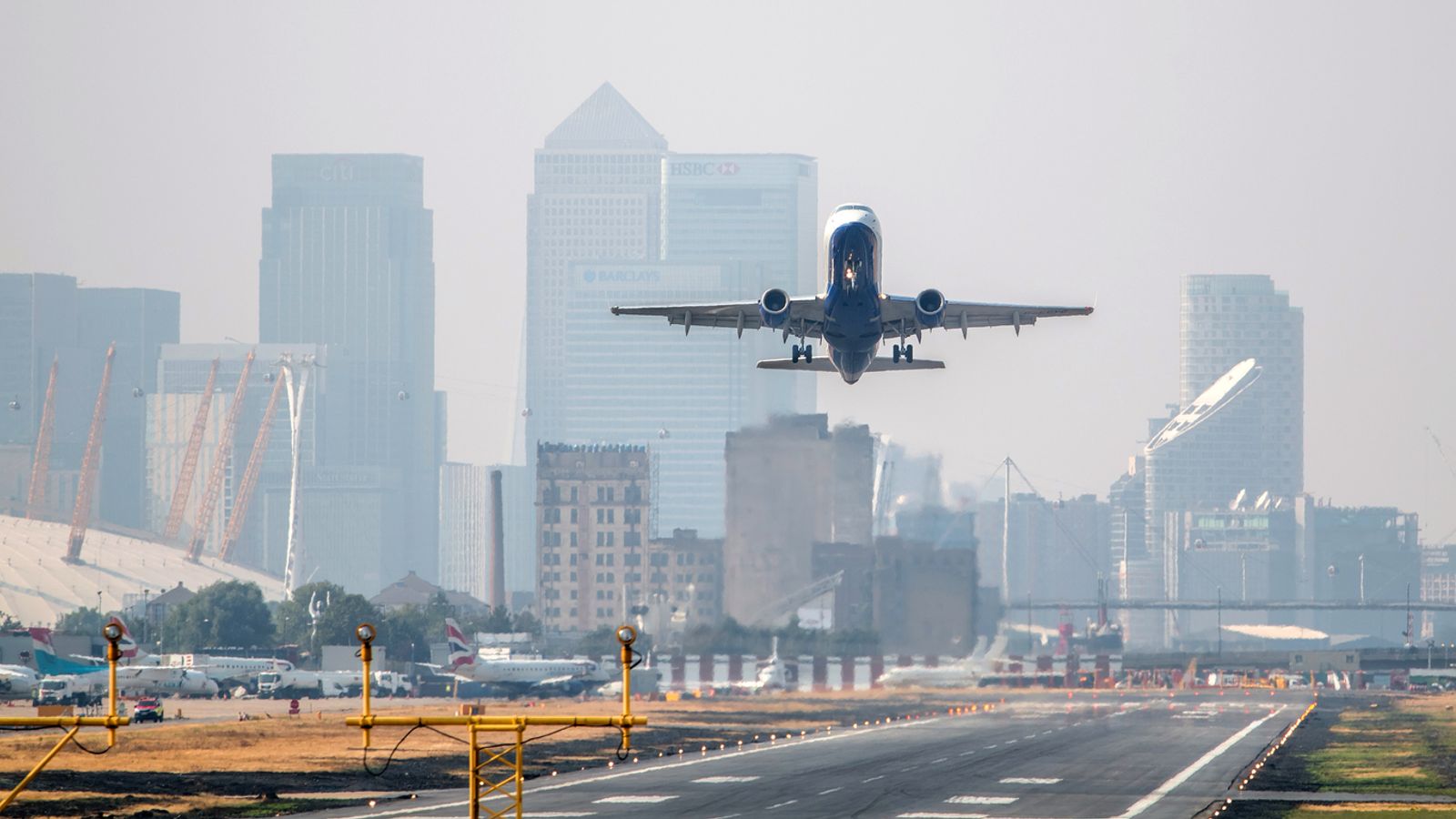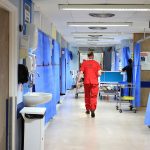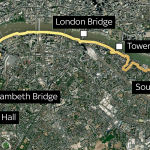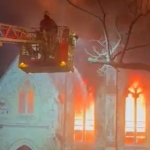Passengers travelling through London City Airport will no longer have to limit their liquids to 100ml in their hand luggage as high-tech CT scanners have been introduced at security.
The move, which will be implemented today, comes after the government set a June 2024 deadline for most UK airports to install the machines.
Teeside is also using new technology, meaning passengers there do not need to remove liquids, tablets, laptops and other electronic items from their hand luggage for security checks.
When passengers reach London City Airport’s security area, high-tech CT scanners will take high-resolution 3D images to check hand baggage and clothing for any dangerous or banned foods.
It means travellers can now leave up to two litres of liquid in their hand luggage at security, along with all electronics.
Since a terrorist threat in 2006, liquids have been limited in volume to 100ml and passengers have had to placed them in a clear plastic bag. The rule was aimed at stopping liquid explosives from being carried onto planes.
But this will no longer be a requirement, with Transport Secretary Mark Harper saying in December that most major airports will roll out the new technology this year.
Former chancellor Nigel Lawson dies
Nigel Lawson dies: The life of Thatcher’s chancellor, from political clashes to the Big Boom and climate scepticism
Police name 18-year-old stabbed to death in Leeds as Jamie Meah
“By 2024, major airports across the UK will have the latest security tech installed, reducing queuing times, improving the passenger experience, and most importantly detecting potential threats,” he added.
But customers have been warned to check the return rules for carrying liquids at any airport which they may travel or transfer through.
“Many destinations may not have implemented this new technology,” the Department for Transport previously said.
Be the first to get Breaking News
Install the Sky News app for free
The new scanners use CT X-ray technology to provide a 3D image of the contents of passengers’ bags and deploy “highly advanced threat detection algorithms”, it added.
Trials of the new technology have been conducted at some airports and demonstrated the effectiveness of the screening equipment, the department said.
They are already used in airports such as Schiphol in Amsterdam.
The Airport Operators Association (AOA) previously said the new technology will “provide a great step forward for UK air travel, matching the best in class around the world”.
“It will make the journey through the UK’s airports easier and air travel itself more pleasant,” said AOA’s policy director, Christopher Snelling.






















